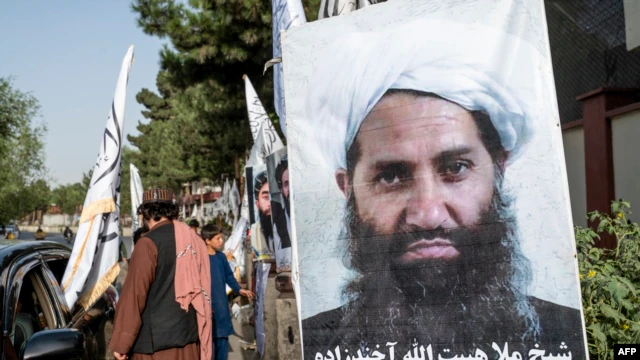The Taliban government announced on Thursday that Afghanistan no longer recognizes the jurisdiction of the International Criminal Court (ICC). They declared the 2003 decision by the previous government to join the Rome Statute as unlawful.
The move follows an announcement by ICC chief prosecutor Karim Khan on January 23. He sought arrest warrants for Taliban supreme leader Hibatullah Akhundzada and Chief Justice Abdul Hakim Haqqani. The court accused them of crimes against humanity for persecuting Afghan women and girls.
Taliban Condemn ICC as Politically Biased
In their official statement, the Taliban rejected any obligation to the ICC. They stated that Afghanistan, governed under Islamic Sharia, does not fall under the court’s authority.
“The Islamic Emirate of Afghanistan does not recognize any obligation to the Rome Statute or the institution referred to as the ‘International Criminal Court,’” the statement read. The Taliban accused the ICC of political bias and failing to hold Western forces accountable for war crimes in Afghanistan.
They also argued that major world powers like the United States are not part of the ICC. They questioned why Afghanistan should be bound by an institution that powerful nations refuse to join.
Background of Afghanistan’s ICC Membership
In October 2001, U.S.-led forces invaded Afghanistan and overthrew the Taliban government. The internationally recognized Afghan government later joined the ICC in February 2003. By signing the Rome Statute, Afghanistan gave the court authority over crimes committed within its territory.
The Taliban reclaimed power in August 2021 after U.S. and NATO troops withdrew. Since then, they have imposed strict interpretations of Islamic law. These include severe restrictions on women’s rights, press freedom, and public participation.
Akhundzada’s Policies and ICC Charges
Hibatullah Akhundzada rarely appears in public and rules Afghanistan from Kandahar. Under his leadership, the Taliban have banned girls’ education beyond sixth grade. Women face prohibitions on working in most sectors, traveling without a male guardian, and entering parks and gyms.
The ICC prosecutor stated that his office gathered substantial evidence of crimes against humanity. He holds Akhundzada and Haqqani responsible for policies that systematically oppress Afghan women.
Taliban Defend Governance as Religious Duty
The Taliban remain defiant against international criticism. Akhundzada recently defended his rule, saying his governance follows Islamic teachings. A government spokesperson stated that Akhundzada’s decrees come from Quranic and Hadith-based rulings.
Despite global condemnation, no country officially recognizes the Taliban government. Nations and international bodies continue pressuring the Taliban to reverse policies restricting women’s rights.
The ICC has no police force and depends on its 125 member states to enforce arrest warrants. With the Taliban refusing its jurisdiction, the likelihood of executing ICC warrants remains uncertain.
Related Stories:
ICC seeks arrest warrants for top Taliban leaders in Afghanistan
Taliban’s Window Ban: Enforcing Gender Apartheid, Erasing Afghan Women
Taliban Bans Broadcast of Political Programs on Domestic Media
















